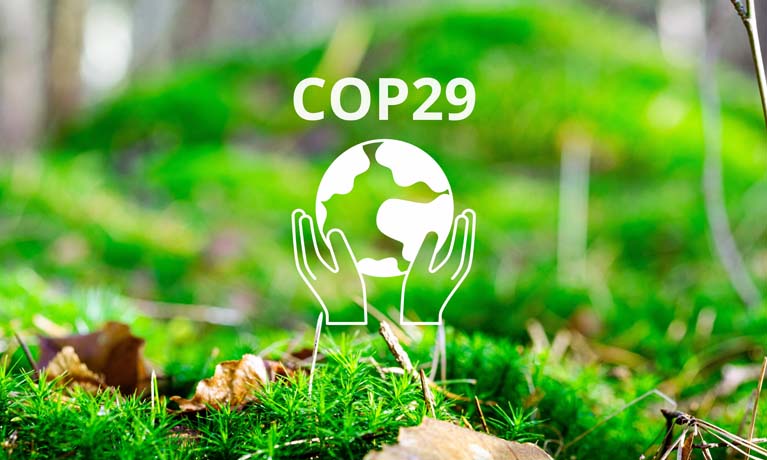By Professor Lyndon Simkin, The Centre for Business in Society
The horrendous loss of life owing to flash flooding in Valencia[i] is but the latest in a long sequence of catastrophic weather events, which have included unexpected droughts, floods, storm damage and wildfires. Explained by many observers as consequences of our impact upon our planet, notably our production, transportation and consumption, causing global warming and climate change. With these changes come threats to health and wellbeing, business and employment, wildlife and agriculture, and to geopolitical stability[ii].
Trees are vital for life, helping to clean the air and soak up carbon emissions, but recent research suggests that 38% of species are now at risk of extinction across 192 countries, largely owing to logging and intensive farming practices to support the global economy[iii].
And of course, our industrial, travel and lifestyle choices cause problems of pollution and poor air quality. According to the World Bank, “pollution is the largest environmental cause of disease and premature death. Pollution causes more than nine million premature deaths, the majority of them due to air pollution. That’s several times more deaths than from AIDS, tuberculosis, and malaria combined”[iv].
I could go on, but these examples indicate the urgency to act and for change in policy, production, consumption and our attitudes.
Since 1995, the UN has staged its COP climate summits each year, designed to examine the evidence, debate the issues, formulate responses and solutions, and persuade key states, politicians and corporate leaders to alter their ways. And yet the problems and poor practices continue.
Global Climate Finance Tops the Agenda
According to environmental news agency Earth.Org, this year’s COP being held in Azerbaijan, “is shaping up to be a defining conference, particularly for global climate finance. Building on previous negotiations, the UN climate summit is expected to seal and ensure efforts toward climate justice, focusing on the ability of the most vulnerable nations to adapt to and recover from the devastating impacts of climate change”. They add that, “time is running out to limit warming to 1.5°c above pre-industrial levels, the target set by world leaders in the 2015 Paris Agreement”[v].
Unfortunately, the many promises of funding to mitigate our actions, of government intervention to safeguard scarce resources and alter production and consumption patterns, and of pledges by large corporations to alter their practices, have never yet been delivered in full. Meanwhile, the floods, droughts and wildfires continue, finite resources are disappearing, pollution levels rise, and the natural environment is failing to combat the impact of man.
As the World Economic Forum explains, “the world is almost halfway through the ‘famed decade of action’. Unfortunately, each year, the likelihood of tackling key goals, such as limiting global warming to 1.5°c, seems even more daunting. And with global public debt hitting the $100-trillion-dollar mark, some countries might rethink investments in everything from reducing emissions to protecting nature”[vi].
According to the World Economic Forum, the issues underpinning the Rio Conventions[vii] are merely different expressions of one planetary crisis, one that is made all the more challenging by crises of poverty, over-consumption and over-use of nature, adding, “the conversations in the coming weeks are critical to staying on target with key global goals and ensuring accountability for economies worldwide engaged in the business of protecting and restoring planetary health. Leaders must seize the opportunity to drive these conversations in order to achieve these goals”[viii]. Not just political leaders, but business leaders, too.
Three COPs Collide
2024 is the year three COPs collide. As explained by the UN, “this year the UN summits on Biodiversity, Climate and Land take place in quick succession between October and December in Colombia, Azerbaijan and Saudi Arabia, respectively. They will convey the urgency, and the opportunity, of raising the coordinated ambition, investments and action to protect our planet and respond to the growing demand for food, water and resources”[ix].
The UN goes on to state that, “The current ways of doing things are simply not working. We cannot tackle these issues in isolation. Climate change is not just about carbon emissions. Land degradation is not just about soil. Biodiversity loss is not just about endangered species. These issues are part of a much larger, more complex puzzle. And if we are going to solve it, we need to work together, break down silos and approach these problems in an integrated way”[x].
COP29 Must Be More Than a Talking Shop
But what will be different this time? At a time when most global superpowers are distracted by war, conflict, trade arguments and domestic political upheaval, are the COPs even being discussed in Washington, Moscow, Beijing, New Delhi, London and Brussels? Let’s hope so, because action is needed to stem the flow, put out the fires, clean the air, and redress the land. Talking is necessary and welcome, to publicise the issues and present the evidence. But this year more than ever before, the COP summit must lead to changed behaviours and practices.
Updates from the Baku sessions for COP29 are available live: https://unfccc.int/cop29
[i] Sofia Ferreira Santos, Spain floods: Before and after images show devastation, 1 November 2024; https://www.bbc.co.uk/news/articles/cz7wvpyewxlo.
[ii] European Commission; https://climate.ec.europa.eu/climate-change/consequences-climate-change_en.
[iii] Helen Briggs, Alarm call as world’s trees slide towards extinction, 28 October 2024; https://www.bbc.co.uk/news/articles/c24558g69mgo#:~:text=Trees%20are%20at%20risk%20in,and%20ebonies%20also%20at%20risk.
[iv] World Bank, 19 September 2023
[v] Anass Rida, Climate finance: What can we expect from COP29 and what must happen?, 1 November 2024; https://earth.org/climate-finance-what-can-we-expect-from-cop29-and-what-must-happen/#:~:text=The%20core%20of%20any%20discussion,and%20adaptation%20against%20climate%20change.
[vi] World Economic Forum, 17 October 2024, It’s a triple COP year: What that means and why it matters for business leaders;
[vii] https://unfccc.int/process-and-meetings/the-rio-conventions.
[viii] World Economic Forum, ibid.
[ix] United Nations Climate Change, In this triple COP year, leaders must align efforts to ensure planetary health, 23 September 2024; https://unfccc.int/news/in-this-triple-cop-year-leaders-must-align-efforts-to-ensure-planetary-health.
[x] United Nations Climate Change, ibid.
Through understanding the impact of organisations’ activities, behaviours and policies, the Centre for Business in Society at Coventry University seeks to promote responsibility, to change behaviours, and to achieve better outcomes for economies, societies and the individual.




Comments are disabled